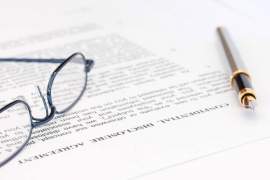
Understanding the Court's Use of Strict Liability

If the courts determine that the nuisance that exists is one, involving dangerous and harmful activity, then the defendant will be subjected to strict liability. In this case, even if the defendant took all the possible precautions to prevent interfering with the plaintiff's enjoyment of property, the defendant is still held liable for the damages.
In nuisance cases involving strict liability, the defendant's actions are not those of an ordinary person. The activities the defendant engages in are those of great risk, despite a level of utmost care. For example, when a defendant sets off fireworks, a plaintiff may complain that those fireworks damaged his property or caused a noise disturbance. In this case, because lighting fireworks is considered an abnormally dangerous activity, the defendant would be held strictly liable.
It would not matter whether the defendant took all possible precaution to ensure that the fireworks would not disturb the neighbor; this could not be used as a defense.
If a defendant is storing hazardous chemicals on his property, and these chemicals somehow interfere with the plaintiff's use of his own land or his comfort, despite any efforts to contain the substance, the defendant will be held strictly liable. The materials may cause actual physical damage to the property, such as damage to a lawn or structure, or it may cause the invasion of some property right.
Private property law gives the owner the right to enjoy the comforts of his property without interference. If, for example, it is the odor from the hazardous material that is bothering the plaintiff he can still take action. This differs from a nuisance due to negligence because the defendant's actions may not have been careless at all. However, a defendant will not be liable in a nuisance case if he was acting the basis of some legislative authority and inadvertently caused a nuisance.
NEXT: The Historical Meaning of Nuisance




















